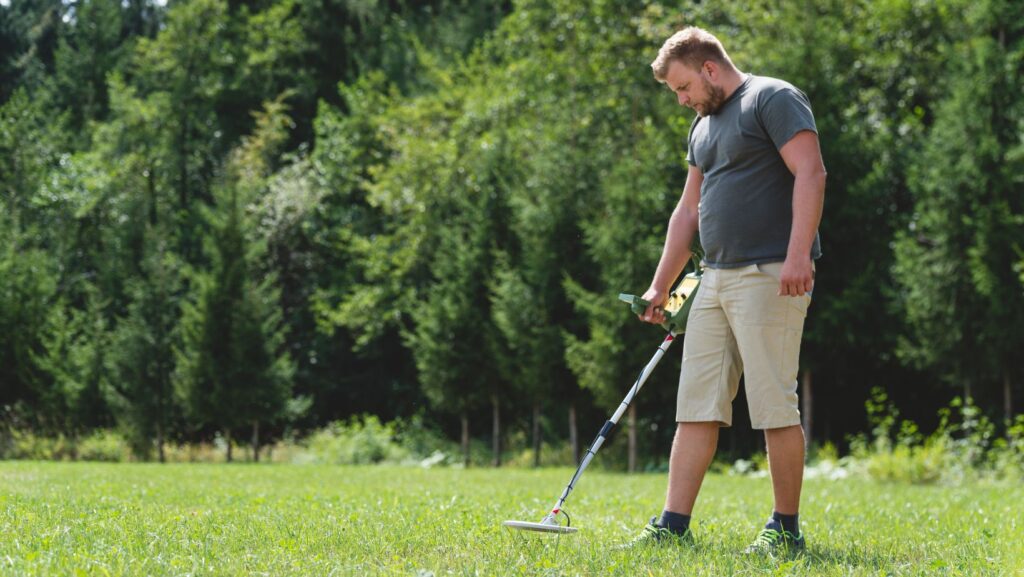Metal detecting is a thrilling and rewarding hobby that allows enthusiasts to uncover hidden treasures and connect with history. However, with this exciting pursuit comes a significant responsibility. Ethical metal detecting is crucial for preserving historical sites and respecting landowners. In this post, we’ll dive into the key ethical considerations every detectorist should keep in mind to ensure that their hobby remains respectful and responsible.
Understanding the Importance of Ethics in Metal Detecting
Ethics in metal detecting is more than just a guideline—it’s a vital part of preserving our cultural heritage and maintaining positive relationships with the community. Metal detecting can have a profound impact on historical sites and artifacts, potentially altering or damaging items that offer invaluable insights into the past. Recognizing both the legal requirements and moral responsibilities associated with detecting helps ensure that we protect these treasures and respect the land we explore. It doesn’t matter whether the equipment is for hobbyists or professionals; you always have to be respectful.
Respecting Historical Sites
When it comes to metal detecting on historical or archaeological sites, respect and caution are paramount. First and foremost, it’s essential to avoid detecting in protected areas where excavation is restricted. These sites often hold significant historical value, and unauthorized digging can lead to irreparable damage. If you do come across something of potential historical significance, it’s crucial to report it to local authorities or heritage organizations. Proper handling and documentation help preserve these findings for future generations and contribute to our understanding of history.
Understanding how digging affects archaeological sites is also key. Even seemingly minor disturbances can impact the integrity of a site. Always aim to minimize your footprint by using appropriate digging techniques and keeping disturbances to a minimum. By doing so, you help maintain the historical value of the sites you visit.
Respecting Private Property
One of the core principles of ethical metal detecting is respecting private property. Always seek permission from landowners before detecting on their land.

This simple step not only shows respect but also helps build positive relationships. When requesting permission, be polite and professional, and offer to share the results of your findings as a gesture of goodwill.
In case of disputes or disagreements, handle the situation with professionalism and respect. Clear communication and a willingness to address concerns can help resolve conflicts amicably and maintain trust with landowners. Remember, maintaining good relationships with property owners is key to ensuring that you can continue to enjoy the hobby responsibly.
Ethical Digging Practices
Ethical digging practices are crucial for minimizing environmental impact and maintaining a good reputation within the metal-detecting community. One essential practice is to minimize damage by using the right tools and techniques. Avoid large or disruptive digging methods that can harm the environment or alter the landscape.
Properly filling holes after digging is another important practice. Leaving the area as you found it helps preserve the environment and shows respect for the land you’ve explored. Additionally, properly disposing of trash and non-valuable items you encounter ensures that you leave the site clean and free of debris.
Adhering to Local Laws and Regulations
Metal detecting laws and regulations can vary widely depending on your location. It’s crucial to familiarize yourself with local laws to ensure that your detecting activities are compliant. This may include obtaining permits or licenses required in certain areas. Awareness of legal responsibilities, including reporting findings and respecting restricted areas, helps you avoid legal issues and contributes to the responsible practice of the hobby.
Do You Always Have To Spend A Lot Of Money On A Metal Detector?
Have you always wanted your own metal detector but are deterred by the price? While you can definitely see high prices for this equipment, know that shopping around on the Internet can make this situation better.
So, let’s answer the question. Do you always have to spend a lot of money when you’re buying your own metal detector? The answer is no. Here are some tips that can make sure you don’t purchase extortionate equipment.
Consider Your Needs
First of all, you need to consider your needs and what you want from a metal detector. Some of the most expensive equipment has all of the latest features.

But you might not need them for a hobby. So, the best thing to do is write down all of the features you want to have first. Then, you can narrow down your options and cut out some of the more expensive options. There’s no point in buying a model with a bunch of features you’ll never use.
Have a Budget in Mind
It’s recommended that you have a budget in mind from the beginning. Then, you can save yourself time and disappointment. Have a budget and cut out those metal detectors that are above it. Then, you’re not going to shop and find out they’re above what you want to pay. Just ensure you’re realistic with your budget. For example, most websites have a filter feature, which allows you to choose the minimum and maximum prices to display.
Be Savvy with Sales
Note that most online companies will run sales throughout the year. This applies to every industry that has competition. So, when you have some patience, you can acquire a metal detector at a lower price. Wait for a sale to run and see if you can grab a bargain. Some companies will give you a discount if you sign up for emails or create an account and put equipment in your basket.
Conclusion
Ethical metal detecting is about more than just finding treasures; it’s about preserving history and respecting the land and people around us. By adhering to these ethical practices, you contribute to the positive image of the hobby and ensure that future generations can enjoy the thrill of discovery as much as you do. Let’s all commit to responsible detecting and working together to protect our shared heritage.

